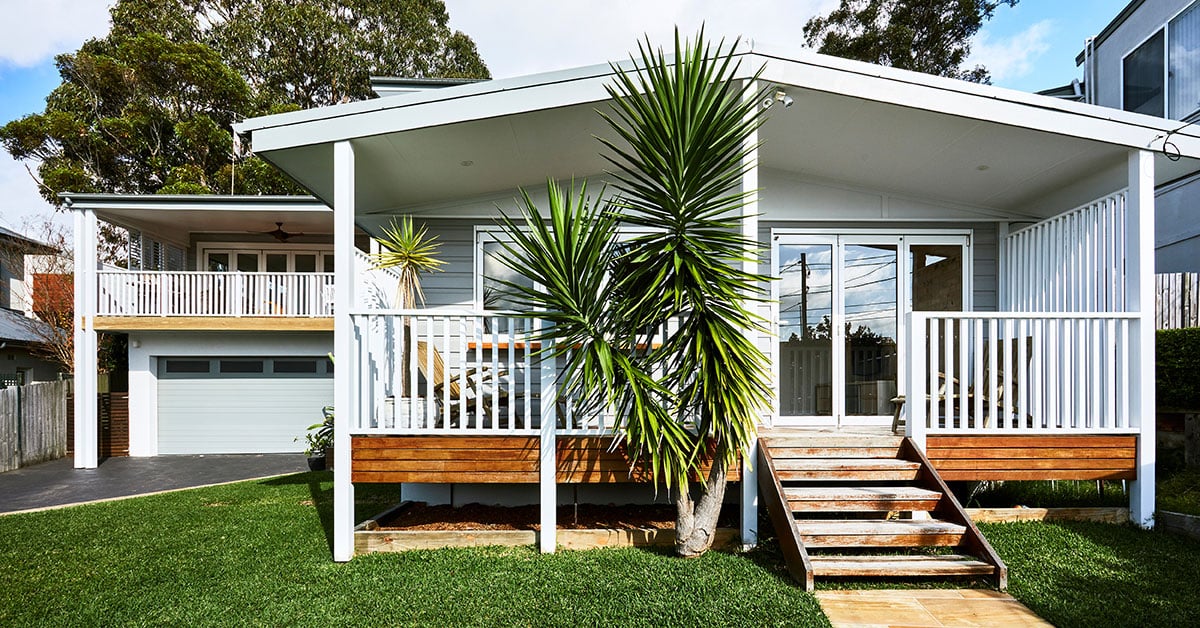Holiday Home Investment Guide

Holiday homes can be a successful investment strategy offering the dual advantage of supplementing your income while affording you a private retreat.
However, before taking the plunge, it's essential to weigh the costs and benefits. Whether you're purchasing outright or considering a second loan, evaluating the impact on your finances, lifestyle, and long-term goals is paramount.
Below, we outline some of the considerations to make when owning a holiday home to help you decide whether it’s a viable investment for you.
Holiday home investment in Australia
Whether it’s for spending time with loved ones, escaping the busyness of life, or making a savvy business move to generate additional income, buying a holiday home is a popular lifestyle choice.
One of the benefits of investing in a holiday home in Australia is that it can offer investors a good return on investment. But keep in mind, it can be risky.
The problem is that most destinations where holiday homes are located are very seasonal, which can impact rental income and property value fluctuations.
Before investing, check how property values are growing and how often the place is empty during busy and slow times. Buying in an area with industries other than tourism can help to keep it tenanted even during off-peak times.
A guide to investing in holiday homes
There are considerations investors should make before buying a holiday home as an investment. These include:
1. Finding the right location
When it comes to holiday home investment, location is paramount. You want to strike a delicate balance between personal enjoyment and investment potential.
Start by researching popular vacation destinations that align with your interests and lifestyle. Whether you're drawn to the inner city, the peaceful countryside, or the tropical vibe of a coastal town, choose a location that will resonate with you.
Consider factors such as proximity to amenities, attractions, and transportation hubs. A property close to beaches, ski resorts, or tourist hotspots is more likely to attract renters and command higher rental rates. However, don't overlook hidden real estate gems that offer unique experiences and potential for appreciation over time.
2. Maximising rental during peak vs. off-peak seasons
One of the key benefits of owning a holiday home is the potential to generate rental income. To maximise your earnings, it's essential to understand the seasonal fluctuations in the holiday rental market.
Peak seasons, typically during school holidays and summer months, present prime opportunities to capitalise on high demand and charge premium rates.
Investing in amenities and upgrades can also enhance the appeal of your property and justify higher rental rates even during off-peak seasons. For example, a heated swimming pool, a home bar, an entertainment room or home gym, BBQ facilities, or thoughtful touches like luxurious furnishings to modern appliances can make all the difference in attracting tenants all year round.
3. Tax implications
When purchasing a holiday home as an investment, you must understand your tax responsibilities.
If you consistently rent out your holiday home, you'll be subject to capital gains tax upon selling, provided you make a profit. Holding onto the property for over 12 months qualifies you for a capital gains tax discount, exempting 50% of the gain from taxation. However, you'll still owe tax on half of the capital gain upon sale.
If your property sells for less than its original purchase price, any tax loss incurred can be carried forward to offset gains from other investments.
In cases where your property's expenses surpass its income, you might be eligible for tax breaks through negative gearing. Nonetheless, it's important to remember that investing solely for tax purposes isn't advisable.
Additionally, stamp duty will be payable on the transfer of the property and each Australian state and territory has a different calculation rate along with land tax (depending on the state).
While rental income can provide immediate returns, the value of your property may also appreciate over time, especially in desirable locations with limited supply. Keep an eye on market trends and economic indicators to make informed decisions about buying, selling, or holding onto your holiday home for future generations.
4. Property management
Owning a holiday home comes with its fair share of responsibilities, from property maintenance to guest management and marketing. Unless you're prepared to handle these tasks yourself, investing in professional property management services can streamline these time-consuming tasks and ensure a seamless guest experience.
A reputable property manager can handle everything from routine maintenance and repairs to guest enquiries, bookings, and check-ins. They can also implement marketing strategies to promote your property across various channels, from listing sites to social media platforms.
5. Local and state regulations
The rules for short-term and long-term rentals vary from state to state in Australia. Before renting your holiday home, it's advisable to verify with your local authorities to ensure compliance with state regulations. Consult with them regarding any zoning restrictions, business permits, and restrictions that may apply to short-term rental properties in your area.
6. Marketing your holiday home
For a profitable holiday rental, you need guests or tenants. You’ll need to set aside some money to invest in proper marketing to ensure a consistent flow of bookings for your property.
To attract renters to your holiday home, follow these simple steps:
- Create a great listing: Make a detailed and appealing listing on rental websites like Airbnb or Stayz. Use high-quality photos and describe your property well.
- Set the right price: Price your rental competitively based on location and features. Offer discounts for longer stays or during off-peak times.
- Target your audience: Know who your guests are and advertise to them using social media and targeted ads.
- Partner locally: Team up with local businesses to offer deals to your guests.
- Work with an agent: A local real estate agent can leverage their expertise and network to attract gueststo your holiday home and take care of every step for you.
Weighing it all up
It is possible to make a good income from a holiday home investment. However, it’s crucial to conduct due diligence like any other investment asset. It’s important to be realistic about rental income along with the ongoing cost of maintenance. Yes, short-term rental can help increase your cash flow, but remember that this income isn't consistent year-round and can change depending on the time and season. Location is a major factor in this equation. Finally, your holiday home will likely be in high demand during times when you might prefer to use it yourself, such as school holidays, Christmas, and the summer break. Consider this trade-off carefully prior to buying your holiday home investment.
DISCLAIMER - The information provided is for guidance and informational purposes only and does not replace independent business, legal and financial advice which we strongly recommend. Whilst the information is considered true and correct at the date of publication, changes in circumstances after the time of publication may impact the accuracy of the information provided. LJ Hooker will not accept responsibility or liability for any reliance on the blog information, including but not limited to, the accuracy, currency or completeness of any information or links.



